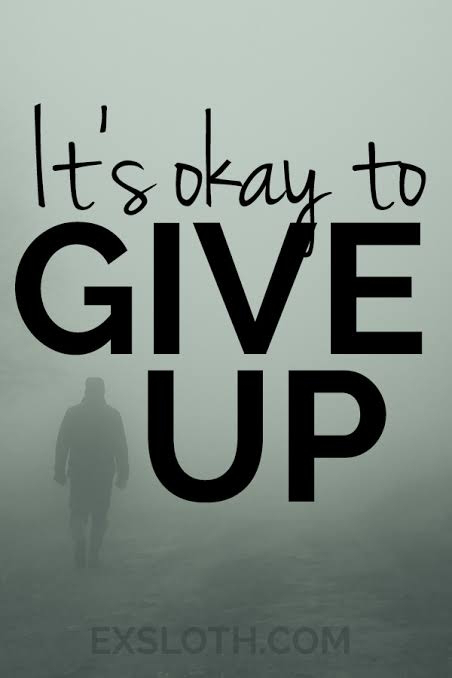There are moments in life when we know—deep down—that continuing down the same path is futile. Yet, we keep going, fueled by hope that maybe, just maybe, things will turn around. We tell ourselves, "I'll give it one more try," even when we know it's unlikely to work.
So why do we hold on? There are many reasons, but they often come down to fear:
- What will people say?
- Will I be seen as a failure?
- How can I let go when I’ve given it my everything?
- I can’t imagine my life without this.
- There must be a way to make it work!
These thoughts cloud our judgment, keeping us stuck. But the real point is not the reasons we hold on—it's recognizing when it's time to let go. Letting go can open the door to something better.
Why Timing Matters
Giving up at the right moment can prevent disaster. Wait too long, and you may find yourself spiraling down a rabbit hole with no way out. But you don’t have to reach that point. The signs are there if you're willing to pay attention:
- Things are not improving—in fact, they’re getting worse.
- No matter how much effort you put in, the results remain stagnant.
- The cost of continuing far outweighs the benefits.
- The passion that once fueled you is barely a flicker now.
- There’s no clear path forward, and the ship is starting to sink.
- You feel irritated and bitter over the smallest things.
- You’re exhausted, drained, and losing yourself in the process.
- Your well-being is taking a serious hit.
- You are totally out of place.
The Strength in Letting Go
Letting go isn’t a sign of weakness; it’s an acknowledgment of reality. Sometimes, the bravest thing you can do is walk away from something that no longer serves you.
When you allow yourself to let go, you create space for new possibilities—opportunities that align with who you are today, not who you were when you started. Instead of seeing quitting as an end, view it as a pivot, a redirection of your energy towards something with greater potential.
Why Giving Up Can Be Powerful
While it might seem counterintuitive, giving up can actually be a form of self-preservation. Here's why:
- Preserving mental health: Staying invested in something that isn’t working can drain your emotional and mental well-being.
- Freeing up resources: When you walk away from a failing endeavor, you free up your time, energy, and resources for new, more promising pursuits.
- Gaining clarity: Letting go can offer the perspective needed to find a better path.
- Preventing further damage: Sticking with a sinking ship can lead to even greater losses in the long run.
Redefining Success
Success isn’t about clinging to an idea for dear life. It’s about knowing when to persevere and when to pivot. Quitting doesn’t mean you’ve failed—it means you’re freeing yourself to pursue something more meaningful, more fulfilling, and more achievable.
So, if you're wrestling with the decision to let go, take a moment to reflect. Ask yourself: What would my life look like if I walked away? What new doors would open? You might just discover that giving up isn’t failure—it’s freedom. And that freedom could lead to your greatest success yet.
"Sometimes letting go is the bravest thing you can do."

Comments
Post a Comment